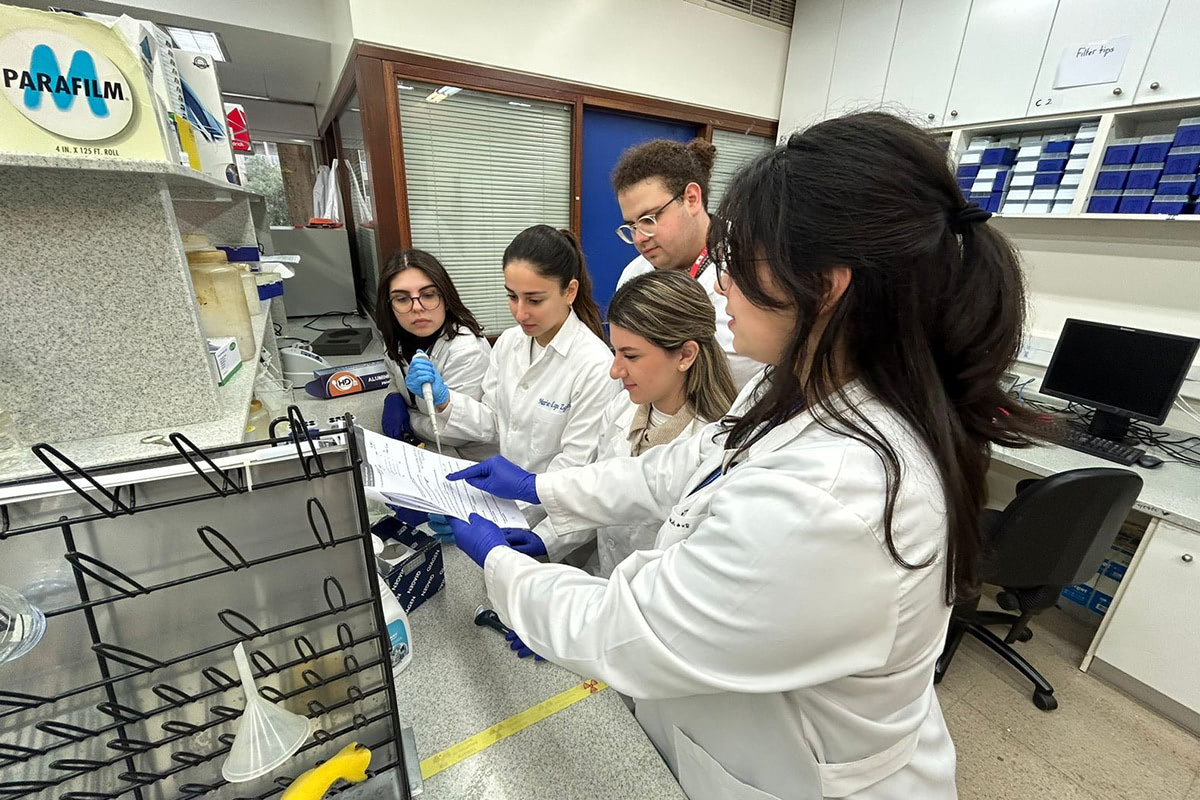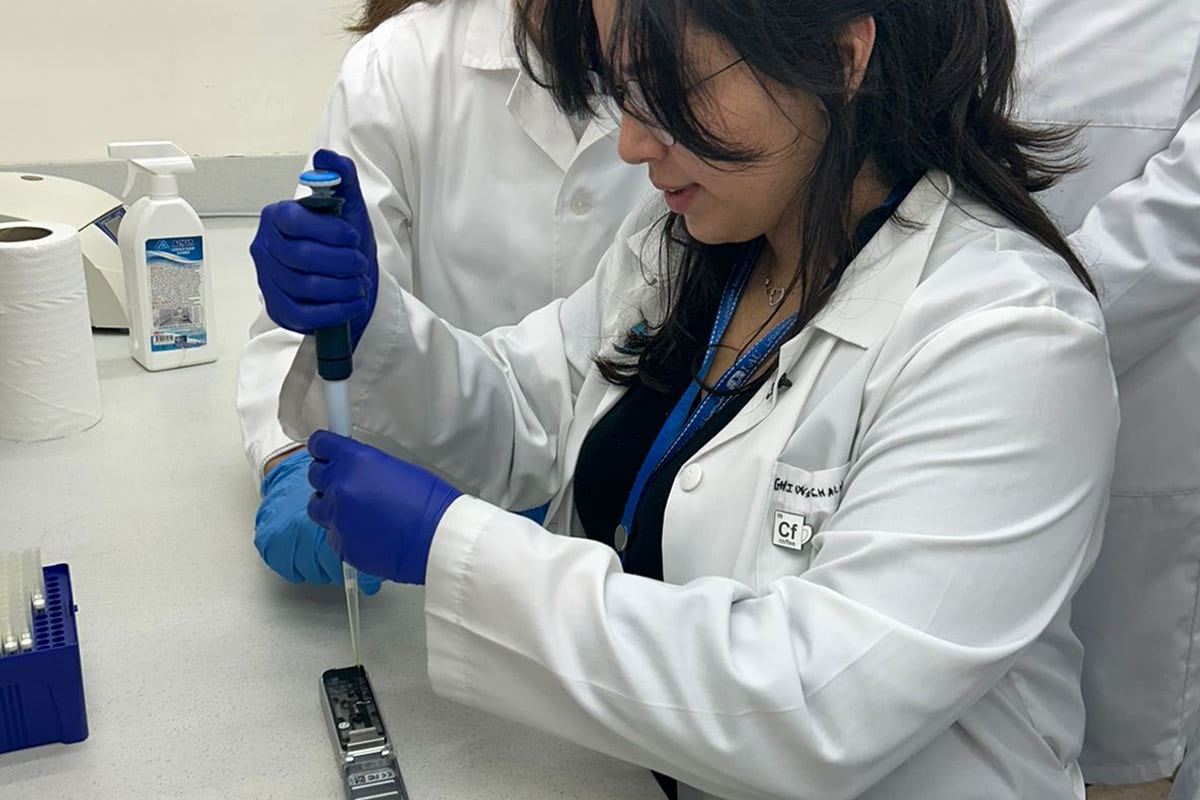From Algorithms to Analysis: Where Technology Meets Biology
The Department of Natural Sciences takes its students on a journey of mastering computational tools and exploring sequencing technologies.
During the pandemic, nanopore sequencing enabled faculty at LAU to determine the circulating variants of the COVID-19 virus with the help of computational biology.
Merging principles from biology, computer science, mathematics and statistics to systematically analyze complex biological processes, this science has led to significant breakthroughs in genomics and drug discovery and development.
To impart this knowledge and skills to LAU students and enhance their career prospects in a digital age, Professor of Biology Sima Tokajian and Assistant Professor of Biology Charbel Al Khoury from the Department of Natural Sciences helped coordinate a winter camp for 25 undergraduate and graduate biology students titled Navigating the Computational Frontier: A Three-Step Journey into Ubuntu, Nanopore Sequencing and Big Data Analysis.
“As technology evolves, the field of computational biology is expanding to address complex biological questions,” said Dr. Tokajian, whose expertise in microbial genomics has set her at the forefront of using next-generation sequencing to study diseases and outbreaks. “This is why there’s a need to prepare students to contribute to innovative solutions and advancements in science and medicine for the betterment of one’s life and society as a whole.”
Over three stages on separate days from January 11–23, the camp “aimed to equip students with crucial skills at the intersection of biology and computation,” said Dr. Al Khoury. “What this means is that the program focused on delivering skills for using computational tools and also provided hands-on experience in advanced sequencing and big data analysis.”
In the first phase, students participated in a comprehensive two-day crash course led by Computer Science Lab Instructor Sergio Thoumi (BS ‘22), during which they studied Ubuntu—an open-source operating system widely used in the field due to its stability, security and compatibility with bioinformatics tools—and essential command line skills.
These foundational skills, noted Dr. Al Khoury, are fundamental “for aspiring computational biologists to conduct efficient data analysis and execute tasks.”
Senior biology student Ahmad El Khateb concurred, recognizing that “knowledge in Ubuntu helps us efficiently manipulate large datasets, which is crucial in computational biology.”
An online session by Dr. Tokajian followed, shifting the camp’s focus to the theory and practical uses of nanopore sequencing, a way of reading genetic code by guiding DNA through a small pore and decoding it based on changes in electrical signals. This method was highlighted for its role in reshaping how scientists determine an organism’s genome sequence, commonly known as genetic material sequencing.
Dr. Tokajian walked the students through the entire sequencing process, from preparing DNA samples to analyzing data by using an advanced sequencing platform available at the Pathogenomics Lab which she heads.
“Understanding the theoretical foundations of nanopore sequencing is important for students as it reveals the approach it takes in decoding genetic information,” she said. “This knowledge prepares them to practically apply nanopore sequencing for in-depth genomic analysis and helps them use it efficiently in real-world situations, in turn enhancing their skills in this dynamic and evolving field.”
In the final stage of the camp, participants applied their foundational skills to handle large datasets. Upon transitioning to the lab at the Byblos campus, they refined their newly acquired knowledge in analyzing and interpreting complex biological data to draw meaningful conclusions and insights from the information within the datasets.
“Putting our big data skills into practice has not only made us well-versed in the theory but also empowered us to handle real research challenges with competence,” said Sahar Moussawi, senior student in Biology.
The comprehensive approach, added her peer and graduate student in biology Paul Nader, “gave us the confidence and expertise to navigate the evolving field of computational biology and to prepare us for future pursuits in this domain.”

